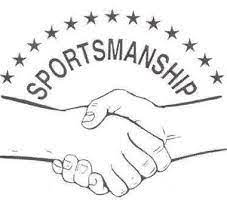Week 8 - Ethics
This week, we had a session on Ethics. To start off, Viji asked us to discuss a moral/ethical dilemma we find interesting.
Personally, my favorite ethical dilemma is that of Mahabharata's Karna. There are two opposing views to the stand he took, both of which have their merits. On one side, he is criticized for supporting Duryodhana in the war, even though he knew he was fighting for the morally corrupt side. On the other hand, many consider this very act the greatest testament to his loyalty; Duryodhana gave him a life when the Pandavas shunned him, and he repaid the favor wholeheartedly, going against his own morals.
Moving on to the session, Viji pointed out that morals and ethics are actually two very different things.
Morals are the rules and guidelines a person sets for themselves, based on their personal experiences and beliefs.
On the other hand, ethics are externally set, perhaps by a society or company. These are the set of accepted rules everyone is expected to follow to maintain smooth social functioning.
For example, it is ethically acceptable to eat meat, and yet many people decide to be vegetarian, thus holding on to a stronger value system in this case. On the other hand, one might prefer informal wear, but if that person's office mandates formalwear, they are ethically required to dress accordingly, even if their value system doesn't require it.
Another important reason ethical standards are required is to make sure people aren't acting completely selfishly. This is done to prevent the Tragedy of the Commons: Every individual would be worse off if they act purely selfishly, as opposed to working together.
Setting Ethical Guidelines
As a thought experiment on the limits of ethics, we had a lively mock debate on Amazon's decision to monitor employees using armband trackers. On one hand, the argument was that the company wanted to track its employees during the company's time to improve its employees' efficiency, and it is the company's choice and free will to do so. On the other hand, the counterargument was that this was an inhuman level of tracking, and given Amazon's poor labour policies so far, there is not much trust that this new policy will be implemented in good faith.
This debate went to show that, for a rule or guideline to become an ethical standard, it must be brought up in good faith, taking into account the preferences of all parties involved.
Why do people act unethically?
There are many different situations wherein even the best of people can stray off the righteous path:
- Slippery Slope: Major violations of ethical guidelines or laws start with a small act somebody does to get ahead, thinking it is harmless. Negotiating with one's values or society's ethics is a slippery slope, and is only bound to get worse over time.
- Greed: Many people caught cheating are often extremely rich by any standards. These are people who have been completely consumed by greed, and are vying for that extra dollar by any means, even if they don't need it at all.
- Pressure: Similarly, people who feel they have high standards to maintain, can be tempted to take unethical means to success when all else seems to be in trouble. They could be tempted to bend their values rather than give up their prestige.
- Peer pressure: When someone sees everyone around them getting ahead using unethical means, it becomes easy to justify the same.
Strengthening our Ethical Compass
To start off, it is important to be constantly in sync with your ethical compass, frequently asking if you're doing the right thing. Over time, this becomes natural and almost instantaneous, giving you the confidence that you will do the right thing.
It is also important to seek out new opportunities outside your comfort zone. When you are in a situation you are not familiar with, you will truly understand how strong your ideals are. When you find yourself confronted with an ambiguous decision, reach out to others. Understand other's points of view, to strengthen your own ethical compass.
Unfortunately, there are areas where unethical practices are widespread. Even in such a situation, remember to hold on to your ideals. The majority is not always right.
It is imperative that everyone, not just you, follows ethical guidelines for a smooth-running society. So, when you see malpractice around you, call it out. Do not be a silent bystander or a facilitator.





Comments
Post a Comment